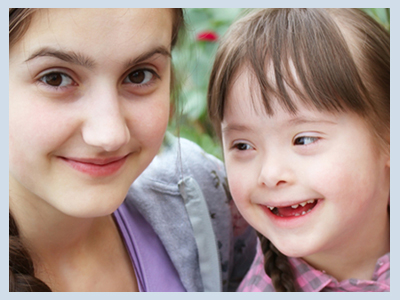The following information summarizes the regulations for special and exceptional rate eligibility, pursuant to New York State Department of Social Services regulations, Sections 427.2, 427.6, and 427.15. The regulations were effective August 1990.
The special rate is applicable for a child who:
- suffers from pronounced physical conditions and a physician certifies that the child requires a high degree of physical care; or
- is awaiting a family court hearing on a PINS or JD petition or is adjudicated a PINS or JD; or
- has been diagnosed by a qualified psychiatrist or psychologist as being moderately developmentally disabled, emotionally disturbed or having a behavioral disorder which requires a high degree of supervision; or
- is a refugee or Cuban/Haitian entrant and is unable to function successfully in the community; or
- entered foster care directly from inpatient hospital care. This child is eligible for the special rate for one year. After that, eligibility depends on meeting one of the other conditions; or
- has an equivalent condition as determined by the local commissioner.
Before August 1990, the special rate could be paid for children who were adjudicated abused or neglected or who were awaiting a Family Court hearing on an abuse or neglect petition, children who were unmarried expectant mothers, or children who were family-care patients from the Department of Mental Hygiene. As of August 1990, however, children can qualify for the special rate based only on the particular needs listed above.
In order to receive the special rate, adoptive or foster parents must participate in at least 4 hours of agency training per year, actively participate in case conferences, and have the necessary training and background to care for the child.
The exceptional rate is applicable for a child who:
- requires, as certified by a physician, 24-hour a day care provided by qualified nurses or persons supervised by qualified nurses; or
- has severe behavior problems characterized by the infliction of violence on themselves, other persons or their physical surroundings, and who has been certified by a qualified psychiatrist or psychologist as requiring high levels of individual supervision in the home; or
- has been diagnosed by a qualified physician as having severe mental illness, such as child schizophrenia, severe developmental disabilities, brain damage or autism; or
- has been diagnosed by a physician as having AIDS or HIV-related illness. If a child tests positive for HIV infection then seroconverts to negative, the child remains eligible for the exceptional rate for one year. After that, eligibility depends on meeting one of the other conditions; or
- has an equivalent condition as determined by the local commissioner.
To receive the exceptional rate, adoptive or foster parents must participate in at least 5 hours of training per year, actively participate in case conferences, and have the necessary training and background to care for the child.
Each county’s individual annual board rate is set according to the child’s age and level of care needed. Within 30 days of placement, your local agency may designate the child’s needs as basic, special or exceptional. A designation can be changed at any point during placement as the child’s needs change. All social services districts are required to have a schedule of rates for foster family care in the normal (basic), special, and exceptional categories. The family should contact the agency that originally placed the child with them to discuss the situation.
Current special and exceptional subsidy rate payment county charts can be found below:
In July 2010 the Adoptive and Foster Family Coalition of New York filed a lawsuit against the State of New York to compel the state to reimburse foster parents for the actual costs associated with children placed in their homes as described in the Federal Child Welfare Act of 1980. This Federal law requires reimbursement for the cost of providing food, clothing, shelter, daily supervision, school supplies, a child’s personal incidentals, liability insurance with respect to a child, reasonable travel to the child’s home for visitation and reasonable travel for the child to remain in the school in which the child is enrolled at the time of placement. In December of 2021, the Coalition and the State signed a settlement agreement to resolve this litigation.
As a result of the lawsuit, families all over the state are seeing changes and increases in the state aid coming to them as the counties rates increases go into effect. Previously, the state set a minimum and a maximum rate and each county could set the rate based on their budget. The lawsuit has eliminated that range and now each county must pay a standard base rate. The only differences are between “Metro” (Metro includes the following districts: NYC, Nassau, Rockland, Suffolk and Westchester counties) the rest of state. The Upstate counties were given the leeway of doing 50% of the difference between old and new now.
All counties are now in compliance.
To receive special or exceptional foster care payments, you will need to show your ability to care for children with special or exceptional needs through past training/experience or by completing special training. You will need to participate in agency training every year and actively partake in case conferences. You must be able to work with the professionals involved in the child’s treatment plan, and to accept assistance and guidance in caring for the child.
Special and exceptional rates need to be approved by the local department of social services. Either a caseworker or a foster parent can submit a request for the special or exceptional rate. If the level of difficulty changes (decreases or increases) due to the child’s need for care and supervision, the board rate will also change. The services expected of the foster parents will also change.


